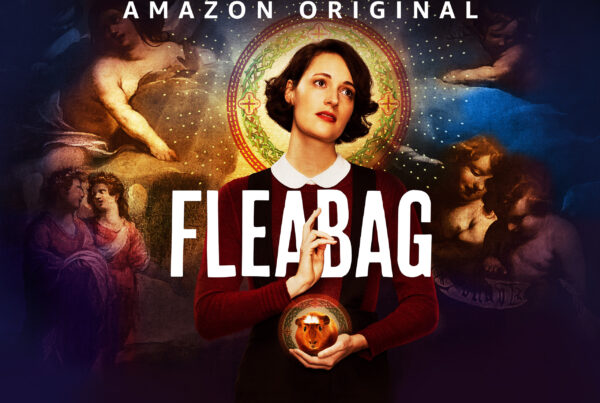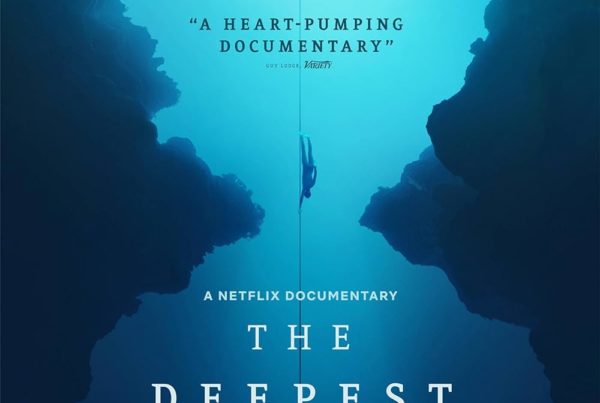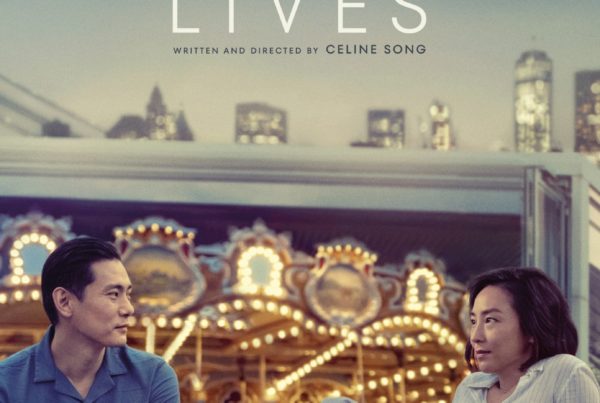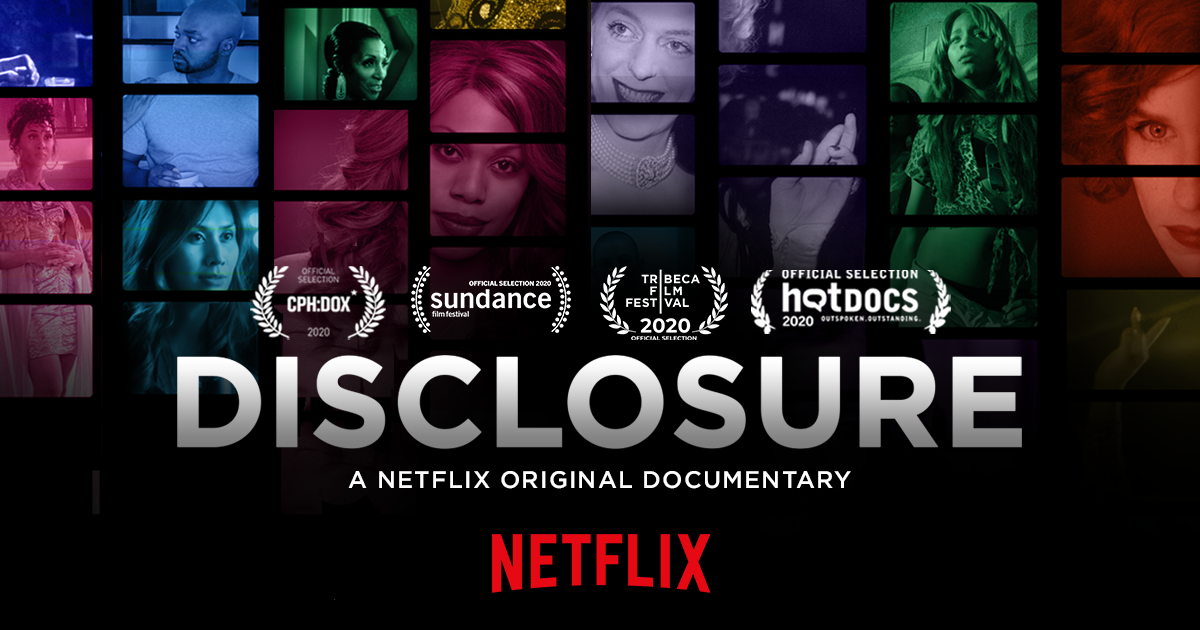
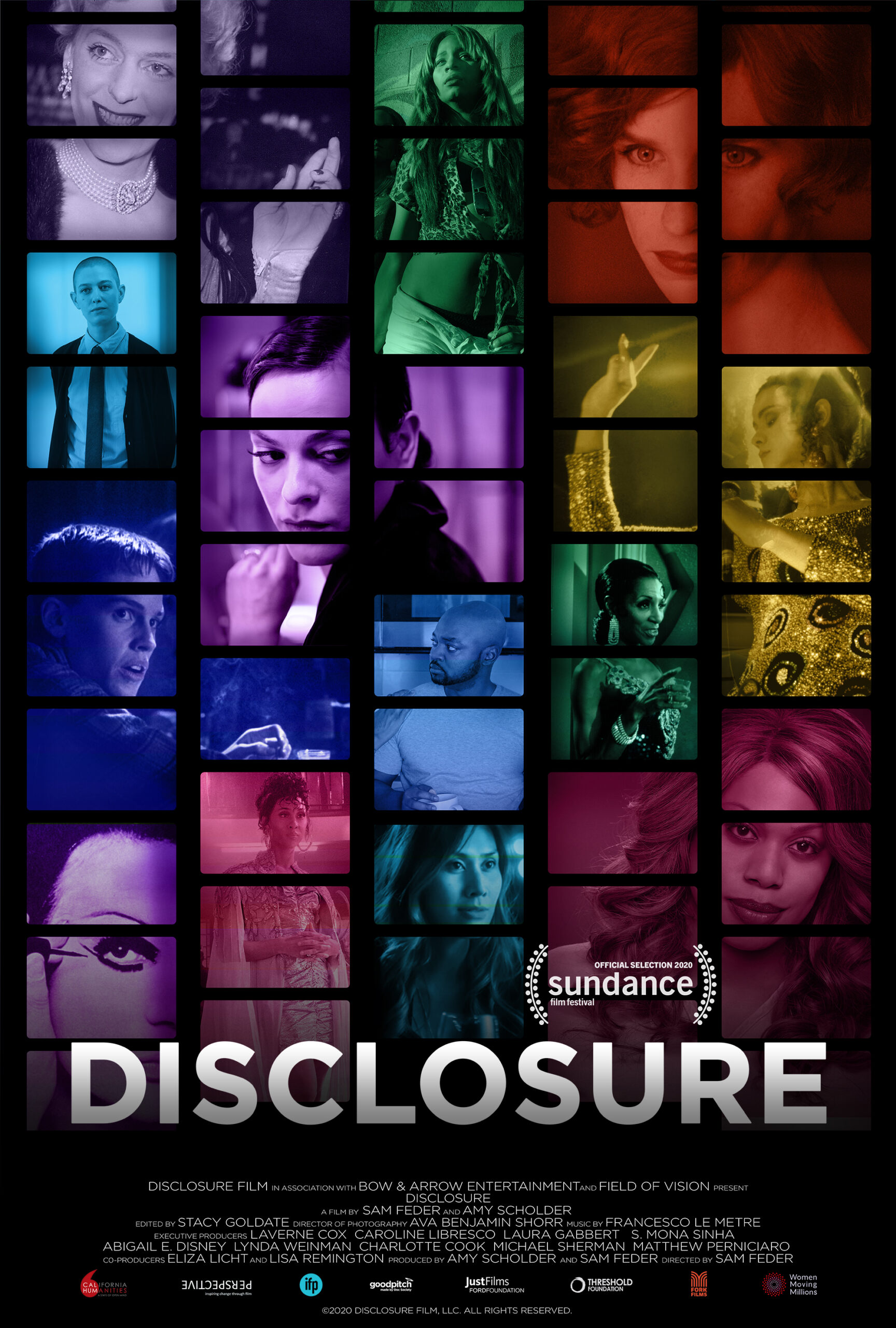
‘I can’t even tell you how many times I’ve been in a public space, particularly early in my transition in New York City, when I would walk into a subway car and people would just burst into laughter. As if my existence on that subway car was just a joke. And I think people have been trained to have that reaction.’
Disclosure, a documentary on Netflix that delves into Hollywood’s portrayal of the transgender community over the decades, is nothing short of eye-opening. Based on personal stories and analyses delivered by dozens of leading trans creatives like Laverne Cox (actress from Orange is the New Black) and Zeke Smith (TV personality), the viewer is moved by the sheer power and truth of their accounts.
Disclosure’s structure is simple to follow: it presents film and media clips of transgender people over time, going as far back as 1904. For each clip, multiple trans creatives give their opinion on what that clip symbolized for the community and themselves, and how it consequently impacted the way they were viewed by others. As the documentary progresses, so does the timeline of events that occurred, and the viewer is taken on a historical journey of the different ways the community has been represented in film and media. They’ve been presented as cross-dressing psycho serial killers, comic relief, and the center of ridicule through intrusive questions in disturbing interviews, to name a few. The wide range of negative portrayal is overwhelming to witness.
Perspective is important in life. People who are not part of the trans community may not have thought twice about the way the community has been presented in films, simply because it didn’t affect them. Yet, these are the very things that have so deeply hurt and impacted trans men and women. Disclosure is not only a way for the trans community to share their perspective on how they felt in the moments they viewed those scenes, but also an opportunity for people who are not part of the community to develop their perspective. Tearfully, multiple speakers recount the emotional baggage they have carried, which stemmed from constantly seeing films reinforce the trans community as a joke and not desirable or worthy of love. Jen Richards (writer) gives a striking example of how she was scared to go on dates with men for a long time in fear that they would throw up. Why? It was the result of Hollywood’s continuous portrayal of men throwing up when they saw trans women in iconic films and series like The Crying Game, Family Guy, and Ace Ventura: Pet Detective.
For those with an interest in social and cognitive psychology, Disclosure provides key examples of how information presented to people affects the way they think. The normalization of the exploitation of the trans community manifested itself beyond the screen and into implicit and explicit biases against the community in daily life. In fact, a study by GLAAD discussed in the documentary showed that 80% of Americans don’t know a transgender person personally, which means they rely on other sources to base their judgments on. An example of other sources would be film. However, in movies, trans characters have been reduced as individuals as their full identity and personality is not potrayed; if a trans character was presented in a film, it was easy for film writers to stick to a narrative that focused only on the sex change as that attracted views. The depiction of trans characters is skewed such that the biological changes are emphasized, framing it as their only defining trait. Dramatizing steroid and hormone injections and not portraying other aspects of being transgender like daily struggles and community progress makes films an unreliable source of information for those who don’t know a transgender person personally. Another source would be the media, for which Disclosure shows clips of countless interviews where the only questions asked to a trans interviewee is on the surgery aspect and not the work they’ve been doing, for example. Trace Lysette (actor, producer) summarizes it perfectly when she says ‘If you’re only showing us as one thing, without any life outside of that, people are never gonna get to see us as a whole person.’
However, the portrayal of the trans community is a double-edged sword, which the speakers in Disclosure highlight as well. On one hand, they have been depicted as ‘mentally ill’ and targets of hate, but on the other hand, the fact that they were represented at all has aided some of these speakers in understanding and accepting themselves better. Films were a catalyst for realizing who they are at a time when there was no other way to obtain this kind of knowledge. Additionally, it has helped trans members relate to characters they see onscreen, because of the resemblance of some similar struggles. The actual inclusion of the trans community in films, whether it was played by a trans actor or a cisgender actor, has been good, however, the issue lies in the way the community has been represented.
On a positive note, the ending of Disclosure alludes to a cultural shift that is currently occurring in mainstream media’s portrayal of the trans community. Film writers and directors are diverging from traditional storylines into ones that portray the trans community for who they have always been: human beings. I truly believe Disclosure should be watched by everyone, those who are part of the community and especially those who are not. I was shocked at how little I knew about the community and their history. Hearing real stories from people who have struggled first hand resonated with me and made me reflect on my ignorance about this topic. For psychologists, there are a multitude of practical applications, like understanding just how strong media/culture influences our perceptions and which topics need to be discussed to provide better mental help for those part of the community. More importantly, as a person living in today’s society, it is important to watch this documentary to understand the events of history, in order to push for a better future. As Susan Stryker (historian) stated beautifully in Disclosure, ‘There is still a lot of work to do, and we can’t think that just because you see trans representation, that the revolution is over. You know it’s not.’
Disclosure is now available on Netflix.

‘I can’t even tell you how many times I’ve been in a public space, particularly early in my transition in New York City, when I would walk into a subway car and people would just burst into laughter. As if my existence on that subway car was just a joke. And I think people have been trained to have that reaction.’
Disclosure, a documentary on Netflix that delves into Hollywood’s portrayal of the transgender community over the decades, is nothing short of eye-opening. Based on personal stories and analyses delivered by dozens of leading trans creatives like Laverne Cox (actress from Orange is the New Black) and Zeke Smith (TV personality), the viewer is moved by the sheer power and truth of their accounts.
Disclosure’s structure is simple to follow: it presents film and media clips of transgender people over time, going as far back as 1904. For each clip, multiple trans creatives give their opinion on what that clip symbolized for the community and themselves, and how it consequently impacted the way they were viewed by others. As the documentary progresses, so does the timeline of events that occurred, and the viewer is taken on a historical journey of the different ways the community has been represented in film and media. They’ve been presented as cross-dressing psycho serial killers, comic relief, and the center of ridicule through intrusive questions in disturbing interviews, to name a few. The wide range of negative portrayal is overwhelming to witness.
Perspective is important in life. People who are not part of the trans community may not have thought twice about the way the community has been presented in films, simply because it didn’t affect them. Yet, these are the very things that have so deeply hurt and impacted trans men and women. Disclosure is not only a way for the trans community to share their perspective on how they felt in the moments they viewed those scenes, but also an opportunity for people who are not part of the community to develop their perspective. Tearfully, multiple speakers recount the emotional baggage they have carried, which stemmed from constantly seeing films reinforce the trans community as a joke and not desirable or worthy of love. Jen Richards (writer) gives a striking example of how she was scared to go on dates with men for a long time in fear that they would throw up. Why? It was the result of Hollywood’s continuous portrayal of men throwing up when they saw trans women in iconic films and series like The Crying Game, Family Guy, and Ace Ventura: Pet Detective.
For those with an interest in social and cognitive psychology, Disclosure provides key examples of how information presented to people affects the way they think. The normalization of the exploitation of the trans community manifested itself beyond the screen and into implicit and explicit biases against the community in daily life. In fact, a study by GLAAD discussed in the documentary showed that 80% of Americans don’t know a transgender person personally, which means they rely on other sources to base their judgments on. An example of other sources would be film. However, in movies, trans characters have been reduced as individuals as their full identity and personality is not potrayed; if a trans character was presented in a film, it was easy for film writers to stick to a narrative that focused only on the sex change as that attracted views. The depiction of trans characters is skewed such that the biological changes are emphasized, framing it as their only defining trait. Dramatizing steroid and hormone injections and not portraying other aspects of being transgender like daily struggles and community progress makes films an unreliable source of information for those who don’t know a transgender person personally. Another source would be the media, for which Disclosure shows clips of countless interviews where the only questions asked to a trans interviewee is on the surgery aspect and not the work they’ve been doing, for example. Trace Lysette (actor, producer) summarizes it perfectly when she says ‘If you’re only showing us as one thing, without any life outside of that, people are never gonna get to see us as a whole person.’
However, the portrayal of the trans community is a double-edged sword, which the speakers in Disclosure highlight as well. On one hand, they have been depicted as ‘mentally ill’ and targets of hate, but on the other hand, the fact that they were represented at all has aided some of these speakers in understanding and accepting themselves better. Films were a catalyst for realizing who they are at a time when there was no other way to obtain this kind of knowledge. Additionally, it has helped trans members relate to characters they see onscreen, because of the resemblance of some similar struggles. The actual inclusion of the trans community in films, whether it was played by a trans actor or a cisgender actor, has been good, however, the issue lies in the way the community has been represented.
On a positive note, the ending of Disclosure alludes to a cultural shift that is currently occurring in mainstream media’s portrayal of the trans community. Film writers and directors are diverging from traditional storylines into ones that portray the trans community for who they have always been: human beings. I truly believe Disclosure should be watched by everyone, those who are part of the community and especially those who are not. I was shocked at how little I knew about the community and their history. Hearing real stories from people who have struggled first hand resonated with me and made me reflect on my ignorance about this topic. For psychologists, there are a multitude of practical applications, like understanding just how strong media/culture influences our perceptions and which topics need to be discussed to provide better mental help for those part of the community. More importantly, as a person living in today’s society, it is important to watch this documentary to understand the events of history, in order to push for a better future. As Susan Stryker (historian) stated beautifully in Disclosure, ‘There is still a lot of work to do, and we can’t think that just because you see trans representation, that the revolution is over. You know it’s not.’
Disclosure is now available on Netflix.

